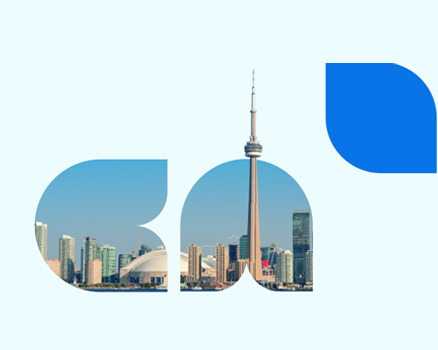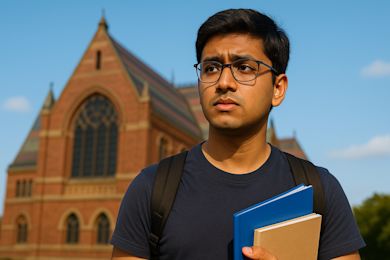- News and articles
- Events
- Find usIDP AustraliaIDP BahrainIDP BangladeshIDP CambodiaIDP CanadaIDP ChinaIDP EgyptIDP GhanaIDP Hong KongIDP IndonesiaIDP IranIDP JordanIDP KenyaIDP KoreaIDP KuwaitIDP LebanonIDP MalaysiaIDP MauritiusIDP Middle EastIDP NepalIDP New ZealandIDP NigeriaIDP OmanIDP PakistanIDP PhilippinesIDP Saudi ArabiaIDP SingaporeIDP Sri LankaIDP Taiwan, ChinaIDP ThailandIDP TurkeyIDP UAEIDP VietnamIDP Corporate
- English
Topics covered
- 5 min
- Published: 29 May 2025
- Updated: 28 May 2025
Celebrate Canadian festivals by joining in and enjoying the spirit!
As we all know, Canada is a multicultural and diverse country with a rich tapestry of holidays and festivals that reflect its history, culture, and values. As an international student, celebrating Canadian holidays and participating in festivals is a great way to connect with the local community, learn about Canadian traditions, and share your cultural heritage. This article explains how new students can celebrate Canadian holidays and festivals.
The major Canadian holidays
1. New Year (1st January)
Canadians celebrate New Year's Eve by gathering at homes or in restaurants and bars, drinking champagne, dancing, and socialising until the countdown at midnight. Many people make resolutions and spend the day with loved ones.
2. Family Day (3rd Monday of February)
It is celebrated on the third Monday of February (not coincidentally, this is the same day Americans celebrate Presidents’ Day). Lacking any real traditions or history, the day is usually declared to be a time to “celebrate families,” with specifics left to the families themselves.
In Prince Edward Island, the holiday is stated as Islander Day, whereas in Manitoba, it is known as Louis Riel Day, named after the province's founder. In Nova Scotia and Yukon, the observance is called Heritage Day, which is a celebration of provincial history; however, in Yukon, it is celebrated on “the Friday before the last Sunday in February.”
3. Easter Sunday & Good Friday (Sometime in March or April)
These Christian holidays honour the crucifixion and resurrection of Jesus Christ. Many Canadians attend church services, and children enjoy Easter egg hunts. Easter in Canada has become an integral part of Canadian culture. Easter Sunday is one of the most crowded (and ostentatiously well-dressed) days for parishes across Canada.
4.Victoria Day (The last Monday before May 25th)
Victoria Day remembers The Birthday of Queen Victoria and is regarded as the unofficial beginning of the summer season. People celebrate this day with fireworks shows and outdoor activities such as barbecues and picnics, taking advantage of the warmer weather.
5. Canada Day (July 1st)
A national statutory holiday, it commemorates the anniversary of the Canadian Confederation, which took place on July 1, 1867, with the enactment of the British North America Act, 1867, when the three distinct colonies of the United Canadas, Nova Scotia, and New Brunswick were merged into a single dominion.
This occasion is also indicated and commemorated as Canada’s “BIRTHDAY.” Canadians mark the day with parades, fireworks, free concerts, and community gatherings. It’s an opportunity to express national pride and partake in summer celebrations.
6. Labour Day (First Monday in September)
Labour Day is a public holiday that celebrates the contributions of workers. It marks the end of summer and is often celebrated with picnics, barbecues, and outdoor activities.
7. Thanksgiving Day (Second Monday in October)
Thanksgiving in Canada is a time to express gratitude for the harvest and blessings of the past year. While it's like the North American holiday, Canadian Thanksgiving takes place in October instead of November. Families gather for a traditional Thanksgiving dinner comprised of iconic North American foods, including turkey, sweet potatoes, corn, Brussels sprouts, cranberries, and pumpkin pie.
8. Remembrance Day (November 11)
Remembrance Day honours the sacrifices of Canadian soldiers in wars and conflicts. Every November 11 since Canadians have celebrated peace and remembered the horrors of war by observing Remembrance Day, the most sombre holiday of the year. At 11 o’clock on November 11, all Canadians are expected to stop what they’re doing and observe a moment of silence in memory of the soldiers who have given their lives in the various wars in which Canada has fought, and many wear poppies as a symbol of remembrance.
9. Christmas Day (December 25)
Christmas is widely celebrated in Canada, with festive decorations, gift-giving, and family gatherings. In the month-long lead-up to the big day, most Canadians decorate their homes with traditional decorations, the centrepiece being a Christmas tree in the family living room. This is the biggest holiday in the Canadian calendar.
Canadian children are taught that Santa lives in Canada, and the Canadian post office promotes this idea by pushing a “Write to Santa” program that gives him a Canadian address and postal code. For those looking to meet Santa in person, most large Canadian shopping malls feature an actor playing Santa Claus that children can get photographed with during specific hours.
10. Boxing Day (December 26)
Boxing Day is a public holiday known for its shopping sales and post-Christmas discounts. Many people spend the day shopping or relaxing with family. Malls and electronics stores tend to be sites of madness, and it’s not uncommon to see deal-hungry Canadians camp out in parking lots on the night of December 25th to be first in line when the shops open.
Tips for participating in Canadian festivals and holidays
Volunteer: Many festivals offer opportunities for volunteers. Volunteering helps you understand the cultural significance of each event while meeting new people. It is a great way to give back to the community.
Learn About Canadian Culture & Respect: Understanding the history and cultural importance of these days deepens your connection to the celebrations. Canada is a multicultural society, so be open to learning about and respecting different cultural practices and holidays.
Share Your Traditions: Canada’s multicultural environment encourages sharing and learning about diverse cultural practices, so take the chance to share your holiday traditions.
Stay Open-Minded: Embrace the diversity of the celebrations. Every holiday is an opportunity to learn about Canadian culture and interact with people from various walks of life.
Decorate for the Seasons: Decorate your home according to the season or holiday. For example, put up lights and a tree during Christmas, or carve pumpkins for Halloween.
Celebrate Safety: We should follow local guidelines and safety protocols in every event, especially during large public events or holidays like New Year's evening.
Celebrating Canadian holidays and participating in festivals is a wonderful way for new students to immerse themselves in Canadian culture, meet new people, and create lasting memories. By understanding the major holidays, engaging in multicultural festivals, embracing local traditions, and sharing your cultural heritage, you can enrich your experience in Canada and feel more connected to your new home. Ready to experience Canada firsthand? Start your study journey with IDP today!
*Sources:
Public holidays - Canada.ca
Holidays | The Canada Guide
Heena Rudani, The Author
Having 12 years of experience in the overseas education industry, Heena Rudani has developed deep expertise in sales management, relationship building, communication, and presentations. Currently serving as a Senior Counsellor for Canada at IDP Education. She achieved a Gold Category award and ranked among the Top 10 counsellors in the All India IDP Excellence Award. Holding a postgraduate degree in the Business field, Heena’s academic and professional background enables her to provide exceptional support to students, empowering them to pursue their educational aspirations with confidence.
One account for all your study abroad needs
Create your profile and unlock a wide array of features including personalised recommendations, fast-tracked applications and much more.
Search for articles
Dive into our extensive collection of articles by using our comprehensive topic search tool.









